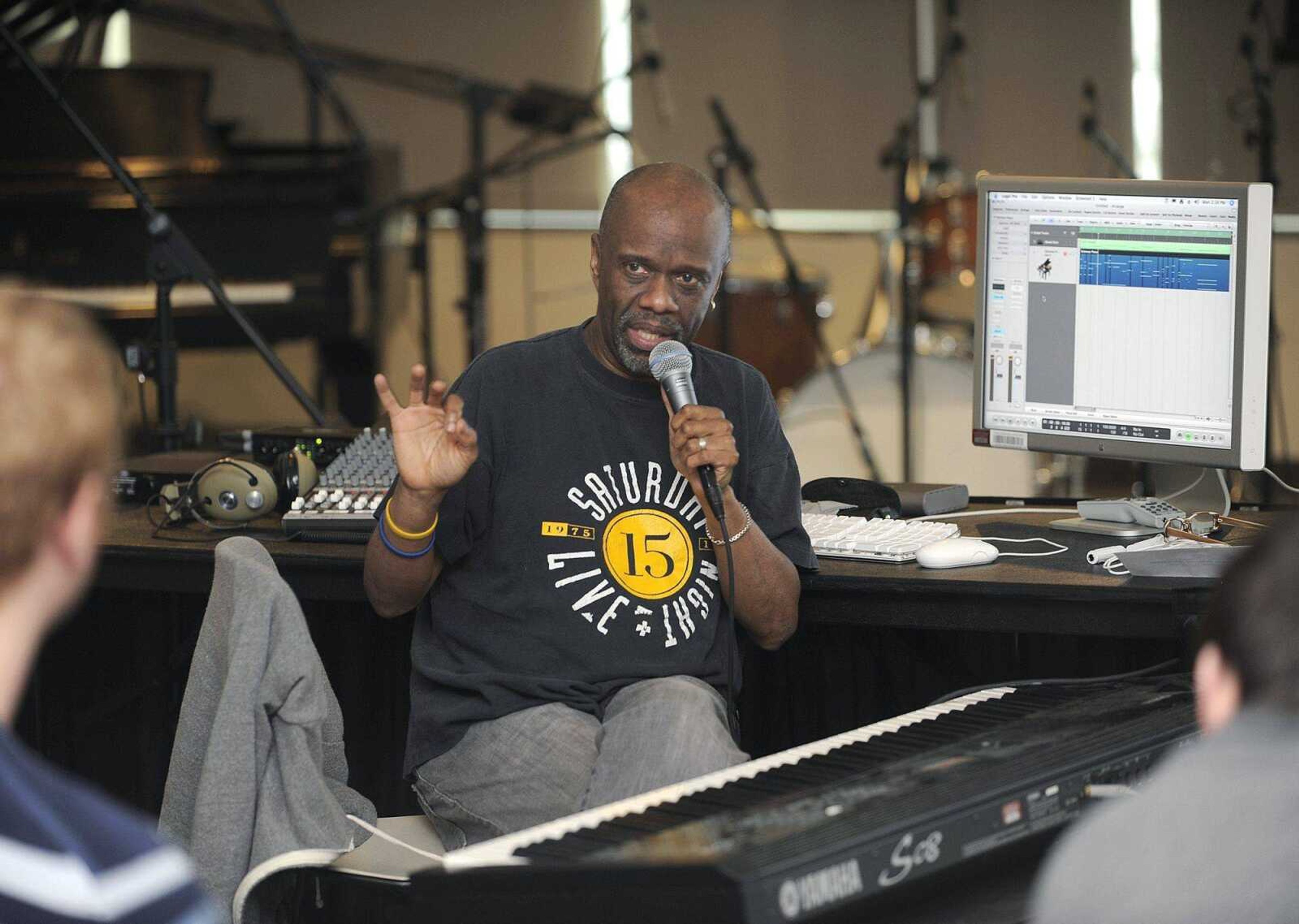Talking Shop with Leon Pendarvis
"Saturday Night Live" musical director Leon Pendarvis recently conducted a digital music production demonstration and impromptu recording session for students at Southeast Missouri State University. He shared with students how new technologies like Apple's Logic Pro software allow musicians to produce their own music for thousands of dollars less than traditional recording studios...
"Saturday Night Live" musical director Leon Pendarvis recently conducted a digital music production demonstration and impromptu recording session for students at Southeast Missouri State University. He shared with students how new technologies like Apple's Logic Pro software allow musicians to produce their own music for thousands of dollars less than traditional recording studios.
Q: What got you interested in music as a child?
A: My mom played the piano growing up in South Carolina. She was my first teacher. She was a first-grade teacher, the church pianist and gave piano lessons to make extra money. I was always climbing up on the bench and banging on the keys. The next thing I knew, she was giving me lessons.
Q: What instruments do you play?
A: I've played the trumpet and tenor sax, then came to New York as an electric bass player. Now I'm back to my roots playing piano and keyboard.
Q: Who are some of the most memorable people you've worked with?
A: I've been fortunate to work with a bunch of folks including Roberta Flack, Marvin Gaye, Aretha Franklin and Sting. I worked as Roberta Flack's musical director for six years. I've played in the Saturday Night Live Band for 31 years. I would have never thought back when I started that I'd still be here.
Q: How did you make the jump from performing music to producing it?
A: It was an natural growth, an extension of what I was already doing. I'd had a career as a player and as an arranger. I was spending a lot of time in the studio. In the late '80s I took out a loan and decided I wanted to put my own studio together. If I could do it myself, I could make my own hours and do things my way. I started with jingles and commercials. My first gold record was Aretha Franklin's "Feel like Makin' Love."
Q: How has the industry changed during your 40-year music career?
A: Now what used to be impossible for you to do unless you had a lot of money or a record label sponsorship you can do without spending a lot of money. That's a plus of what's going on now. The minus is that you don't have the human interaction now. Nowadays, it's basically recording one person at a time. There's no substitute for that level of interaction you have when you get a group playing together in a room. I don't know how to substitute that level of interaction. I don't know that there is a substitute, but there is a new model now. It is what it is.
Q: What are the advantages of a program like Apple's Logic Pro?
A: In the old days we would make edits by cutting tape with a razor blade. You could really screw it up, and it would cost thousands of bucks to fix it. Now, I can move things around [on the computer screen] until I'm blue in the face. It's all nondestructive editing. The original audio files are still on the computer. There are a lot of possibilities via this technology.
Q: Describe your role as musical director on "Saturday Night Live."
A: On Monday we have our pitch meeting with the host, the writers and the cast where they pitch ideas for that week's show. Wednesday is read-through day. They read 40 or so scripts and pick 12 to 14 for the show. If these skits require fake jingles or theme music, we create it from scratch using the same program I showed [at Southeast] today. We use Thursday and Friday to produce the songs. Saturday at 11 a.m. we have band rehearsal. On TV you only hear a few seconds of the songs and then they go to commercial break, but we keep playing for the audience.
Q: What do you hope Southeast students take away from your presentation to them?
A: These tools will only get more robust. Take advantage of them. This technology isn't going anywhere. To resist it is foolish. Still, with all this technology you can't buy taste and you can't buy talent. That's why you've got to keep practicing. You have to work to get there and you have to develop yourself through experience. My hope is that they see the potential that exists by grabbing onto some of these tools. It's not just technology for the sake of technology -- it's fun.
Connect with the Southeast Missourian Newsroom:
For corrections to this story or other insights for the editor, click here. To submit a letter to the editor, click here. To learn about the Southeast Missourian’s AI Policy, click here.










